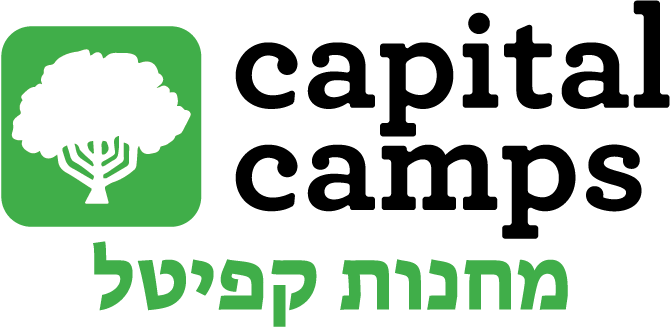From Lisa, our Camp Director…
I spent this year’s Passover holiday in Krakow, Poland. It was an emotional rollercoaster to participate in a vibrant, engaging Passover Seder in a country where 90% of Jews were murdered during the Holocaust. The day before Seder, my husband and I visited Auschwitz-Birkenau, the largest of the Nazi concentration and extermination camps. The next day we sat among Israelis, Americans, Germans, and Poles to recite the familiar words from the Haggadah. We had come to Poland to visit our youngest daughter Dalia, who was both a camper and staff member at Capital Camps, including helping to lead the LIT Israel trip last summer. She is spending the year working at the Krakow JCC.
On one hand, our visit was filled with learning about unimaginable sorrows as we toured the historical Jewish areas, heard stories about the Jewish ghetto, and stood among the “Empty Chairs of Krakow” where each chair represents a thousand lives lost. On the other hand, the trip filled us with a strong sense of Jewish identity and pride. In addition to its mission to rebuild Jewish life in Krakow, the JCC is actively supporting those fleeing the war in Ukraine. My Dad was born in Germany, was a refugee and then a soldier in the USA and now his youngest of six grandchildren is helping Ukrainian refugees.
Unexpectedly I found a connection between the Israeli Rabbi who led Seder, our guide for the Jewish history walking tour, and myself as Camp Director. We all believe strongly in the power of youth to make this world a better place. During the Seder, Rabbi Avi shared two stories that resonated with me. First of all, he reframed the account of Rabbi Eliezer, Rabbi Joshua, Rabbi Elazar ben Azariah, Rabbi Akiba, and Rabbi Tarfon, who were sitting at a Seder in B’nai Brock. All night long, they told the story of the Exodus from Egypt until their students came and said to them: “Our teachers, dawn has broken, it is time to say the Morning Prayer!” Rabbi Avi suggested that these rabbis, living under the Roman oppression of the second century, needed to see the passion of youth to stop telling stories from the past and move on to the future.
Rabbi Avi also shared a new perspective on the message of the four sons or four children; the wise, the wicked, the simple, and the one who doesn’t know to ask. Rabbi Avi asked the assembled group to rank the children from most to least important. After a lively debate, he suggested that the child who doesn’t know how to ask is the most important. This child is there to remind us not to remain quiet. We need to teach our children to ask questions and to challenge what we say and do. It was especially poignant to be discussing the importance of not being silent in a country that witnessed the horrors of the holocaust. It is important to teach our children to speak up and speak out against injustice.
Our non-Jewish tour guide, Big Tom, shared several stories that highlighted the complexity of human nature: wicked individuals who choose to save one life and a Jewish child who escaped the Krakow ghetto but led a questionable moral life as an adult. He shared openly about the persecution of Polish political prisoners but was careful to remind everyone how much harder it was for the Jews. Yes, there were righteous gentiles like Oskar Schindler, whose factory was a few blocks away from where the tour ended, but there was also deep anti-Semitism that continued even after the war. Big Tom explained that there was a time where the full complexity of the stories could not be honestly told. He shared that today children, his children, and others, are learning the more nuanced truth and this gives him hope for the future.
Every summer at camp, we get to experience the joy of Jewish community through the eyes of our campers. We provide support as they discover their voice, get pushed a little bit out of their comfort zone, and learn how to live respectfully with others. Jewish identity is built during the high-energy excitement of Friday night song sessions. And in more subdued moments, we challenge campers to think about Jewish values and their relationship to Israel. Dalia credits Camp with giving her a strong sense of Jewish pride along with the reliance, independence, and confidence to move to Poland for a year. She is using the skills she learned at Camp to help build a Jewish future and to respond to the current refugee crisis. I can’t wait to see how the next generation of campers will do their part for tikkun olam, as they too take what they learn at camp to help repair the world.
